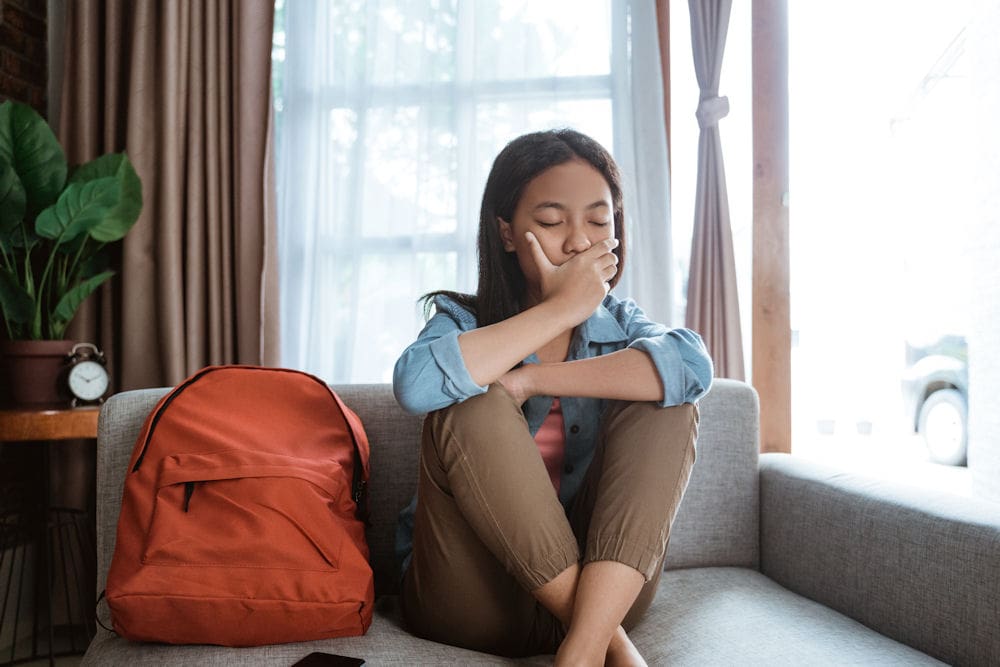Substance use disorder is a complex condition that can harm a person’s relationships as well as their physical and mental well-being. Learning the indications, causes, and treatment options for addiction if you or a loved one is suffering from it can be incredibly helpful.
Due to their ubiquitous availability, benzodiazepines are frequently abused. Taking these medications in higher doses or more frequently than prescribed might result in substance use disorder, which is characterized by an overwhelming desire to use substances regardless of the financial, social, or health repercussions.
At The Freedom Center in Gaithersburg, Maryland, we provide a benzo addiction treatment program that can assist you or a loved one in laying the groundwork for lifelong sobriety. Addiction to benzodiazepines can be harmful.
We provide comprehensive care in a safe and inviting setting so that you can begin to heal. You will restore your life through conversion therapy, medication and medical treatment, and experiential therapies.
What Are Benzodiazepines?
Benzodiazepines (commonly known as “benzos” or “downers”) are a class of drugs that act as a central nervous system (CNS) depressant and sedative. Benzodiazepines are a Schedule IV prohibited substance under the Prohibited Substances Act, which means they have medical use but also the potential for misuse and dependence.
Benzos are prescription sedatives used to treat persons suffering from generalized anxiety disorder (GAD), social anxiety, panic attacks, and even alcohol withdrawal. These drugs offer soothing effects and can assist folks who are unable to function throughout the day owing to anxiety or who are unable to sleep at night. In addition, benzos are sometimes administered to treat alcohol withdrawal during medical detox to prevent or mitigate seizures and relax muscle spasms.
Many people who deal with benzo addiction, which is characterized by obsessive use of benzos, begin with a prescription. Benzo abuse might involve taking drugs without a prescription, taking more than prescribed, or taking them to feel euphoric or “high.”
Some people describe the effects of benzos as calming, which is why they are sometimes prescribed to treat conditions such as anxiety, insomnia, and seizures. However, these drugs can have several side effects, including addiction.
Preventing serious consequences of benzo addiction starts with understanding the risks of abuse and being able to identify the signs of a benzodiazepine use disorder. Commonly prescribed benzos include:
- Valium
- Ambien
- Klonopin
- Xanax
- Ativan
- Halcion
- Lunesta
- Phenibut
As mentioned, benzos have a high potential for abuse. If you believe that you or a loved one is struggling with benzodiazepine addiction, watch for specific behavioral, physical, and psychological changes. If you’ve been prescribed this type of drug, even for a legitimate medical reason, be sure to closely follow your doctor’s instructions and talk to them about any concerns you may have.
How Do Benzodiazepines Work?
Benzos are administered orally in the form of pills. The drug could be ultra-short, short, or long-acting. This relates to how long it stays in your system rather than how long it takes to take action. As a result, regardless of the type, the effects are felt fast, which is why they are useful for panic attacks. Benzos usually affect you within 15 to 30 minutes.
By increasing the level of the inhibitory neurotransmitter GABA in the brain, benzodiazepines deliver relaxing and sedative effects. These drugs can also relax the muscles and impact the central nervous system.
Side Effects and Risks of Using Benzos
While benzodiazepines have some acknowledged medical use, they are also commonly abused substances. According to the 2021 National Survey on Drug Use and Health, 3.9 million Americans aged 12 and up misused prescription benzodiazepines. Benzodiazepine misuse occurs sometimes due to the following:
- Because of their euphoric qualities
- To increase the potency of other substances (such as opioids or alcohol)
- To counteract the negative effects of other medicines (such as stimulant-induced sleeplessness)
Benzodiazepines are frequently synthesized or diverted from reputable sources before being unlawfully distributed. Illicit pills may not be what they appear to be or may include adulterants such as lethal fentanyl dosages.
By the nature of these substances, benzodiazepines reduce heart rate and breathing. Lower vital signs are normal while in a relaxing state (our heart rate is lower when we sleep and higher when we run), however, it can be dangerous if they reduce too significantly. Benzos should always be taken as prescribed to drastically decrease the possible side effects and risks.
Benzodiazepines are classed as short-, intermediate-, or long-acting, based on the length of action in the body (particularly, the elimination half-life). The duration of the effect of benzos might vary from less than 6 hours to more than 24 hours.
Benzodiazepine medicines with short to intermediate half-lives include:
- Midazolam (Versed)
- Triazolam (Halcion)
- Clonazepam (Klonopin)
- Oxazepam (Serax)
- Lorazepam (Ativan)
- Alprazolam (Xanax)
- Temazepam (Restoril)
Benzodiazepines with a long half-life include:
- Diazepam (Valium)
- Flurazepam (Dalmane)
- Chlordiazepoxide (Librium)
- Clorazepate (tranxene)
It is possible to develop a tolerance or physical dependence from the long-term use of benzodiazepines. The user may experience withdrawal symptoms when they stop using if dependence has developed. In this situation, the advised option is to get the help of a benzo detox and addiction treatment program.
Do You Need a Benzodiazepine Addiction Treatment Program?

Not sure if a benzodiazepine recovery program is for you? Take a look at the following:
- Have you used benzodiazepines in methods other than those prescribed to you?
- Have you ever obtained benzodiazepines from someone other than your doctor?
- Do you have withdrawal symptoms when you try to quit?
- Do higher doses produce the same results?
- Have you ever combined benzos with painkillers or alcohol?
If you can answer “yes” to any of the above, reach out to The Freedom Center today to be evaluated by our team of addiction specialists.
Why are Benzodiazepines Addictive?
Any medicine that has an effect on your emotions or operates on the brain has the potential to be addictive. Addiction is characterized as the compulsion to seek and use a drug despite serious negative effects on one’s life. Physicians normally only prescribe them for a limited time—about 30 days.
However, when prescribed for a longer time or obtained elsewhere, the danger of addiction increases. Furthermore, persons who have been taking benzos for even a month may develop withdrawal symptoms after they stop taking the medication. The intensity of the withdrawal depends on the dosage and length of time the person took the medicine.
It is advised to consult a benzodiazepine addiction treatment facility if you are detoxing from this drug after taking it for some time. Furthermore, withdrawal can be severe, sometimes leading to seizures. An addiction treatment clinic will be able to keep track of your progress and safeguard your safety. They may also administer additional medications to alleviate discomfort. This type of prescription drug has the potential to swiftly lead to substance abuse for the following reasons:
- Benzos can swiftly cause physiological dependence. Even persons who take benzodiazepines as recommended may develop withdrawal symptoms if they stop or lessen their use. People will sometimes continue to use benzodiazepines just to avoid withdrawal symptoms.
- Dopamine activity (a brain chemical related to desire and reward that acts to reinforce use) is increased by benzodiazepines.
- As previously stated, benzodiazepines are commonly used with other substances. People who use benzos in combination with other drugs tend to take higher doses of benzos than those who simply use benzodiazepines. High-dose benzo usage can hasten the development of dependence, and polysubstance use can complicate the detox process even more.
Other concerns exist in addition to the possibility of becoming addicted to benzodiazepines. Benzo-related emergency room visits were frequently the result of combining this drug with opioids. Furthermore, consuming alcohol while taking benzos may have catastrophic implications.
What Causes Benzodiazepine Dependence?
Several variables can contribute to substance use disorder. Benzodiazepines are habit-forming sedatives, which means that anyone who uses them risks becoming addicted to them. People who take benzos regularly may feel dangerous levels of calm and demand more of the substance to achieve the intended benefits. The drug’s widespread availability is also a factor. Individuals can become tolerant of benzos even with a prescription and endure unpleasant benzo addiction withdrawal.
The dread of withdrawal is a common reason why people continue to use benzos. People who combine the medicine with other substances or use it for longer than authorized risk developing an addiction.
Mental health problems, genes, and external stress can all increase the chance of developing benzodiazepine addiction. Co-occurring disorders are extremely common, and it’s important to recognize the signs and symptoms.
Signs of Benzodiazepine Addiction
In addition to the physical effects of benzo addiction, there are several behavioral signs to look out for. These include:
- Doctor shopping, or going to various doctors and pharmacies to obtain additional benzodiazepine prescriptions
- Having excessive amounts of prescription bottles
- Withdrawal from friends and family and spending time with a new group of friends
- They no longer have an interest in activities that they previously enjoyed
- Consistently not having money for necessities like rent or other bills
- Exhibiting mood swings and unusual personality traits
- Maintaining secrecy about their day-to-day activities
- Putting little time or effort into general hygiene, grooming, and nutrition
Symptoms of Benzodiazepine Addiction
When misused or abused, the following side effects of benzodiazepines may develop:
- Physical weakness
- Slurred speech
- Confusion
- Blurred vision
- Poor coordination
- Dizziness
- Drowsiness
- Poor concentration
- Reduced breathing
- Headache
- Low blood pressure
- Dry mouth
- Problems with memory and coordination (movement)
- Lack of consciousness
- Coma
- Death
Using benzos recreationally can be harmful and cause major health concerns. It is crucial to note that even when taking these medications as prescribed, people can develop an addiction to them. That is why, if you suspect someone you know is abusing benzodiazepines, it is critical to recognize the signs and symptoms of drug addiction.
Benzodiazepine Withdrawal Symptoms
Anyone who has used benzodiazepines continuously for 3-4 weeks is likely to develop withdrawal symptoms when they quit or drastically reduce their use. Even if someone has been taking benzos as prescribed by their doctor for a medical issue, they may experience mild to severe withdrawal symptoms depending on various factors. Benzos have also been linked to overdose, particularly when combined with alcohol or opiates.
Benzo withdrawal symptoms may include:
- High blood pressure
- Anxiety and panic
- Headaches and muscle pain
- Dizziness
- Tremors
- Fatigue
- Shortness of breath
- Agitation and restlessness
- Seizures
- Sleeping problems
- Sweating
- Muscle cramps
- Gastrointestinal problems
Overdose
Benzo toxicity can also develop when a person takes a bigger dosage than they are used to, which can occur when someone relapses or takes additional benzos to achieve the first euphoric sensations. An overdose can also be lethal for older individuals who take too much of the medicine by mistake. Benzodiazepine overdose symptoms may include the following:
- Sedation or sleepiness to a high degree
- Reduced the rate of breathing
- Reduced heart rate
- Sloppy speech
- Problems with thinking
- Muscle control loss
Since benzodiazepines work by suppressing the central nervous system, when taken with other suppressors, they can cause dangerously low heart and breathing rates, leading to an overdose, or worse death if left untreated.
Treatment for benzodiazepine addiction includes withdrawal management, which involves medical detox to lessen symptoms, suppress cravings, and prevent relapse, and potential overdose.
Benzodiazepines and Mental Disorders
Anxiety is one of the most common mental health diagnoses in the United States and it is one of the conditions benzodiazepines are used to treat. With that, it is not uncommon for an individual to struggle with addiction and anxiety at the same time. When diagnosed with both of these conditions it is referred to as a dual diagnosis.
Some persons may exhibit symptoms similar to significant neurological and mental illnesses such as depression, anxiety, schizophrenia, and seizure disorders. Furthermore, persons who are experiencing benzo withdrawal are at a higher risk of suicide.
Recovery from co-occurring disorders is most affected with they are treated concurrently. For this reason, individuals whose addiction began with a prescription for benzos to treat an anxiety disorder should seek treatment from a dual diagnosis addiction treatment program. Also, someone with a history of addiction should consider alternatives to benzodiazepines for anxiety treatment.
Benzodiazepine Addiction Treatment
Overcoming an addiction to benzodiazepines can be difficult as well as unpleasant. Both physical and emotional symptoms that may present when someone stops using may serve as an encouragement to relapse or discouragement to continue with treatment.
Additionally, the risk of health issues and relapse during recovery are among the reasons why it is recommended to get help from a drug and alcohol rehab program. Substance abuse treatment has been proven to save lives.
The Freedom Center in Gaithersburg, MD, offers tailored treatment strategies to those battling benzo addiction. Since no two people in recovery are alike, we do a thorough intake evaluation on each patient. We learn more about our patient’s needs and treatment goals throughout.
Medical detox is always the first step in treatment for benzo misuse. We provide 24-hour surveillance to assure our patients’ safety during detox. Certain drugs might help alleviate withdrawal symptoms such as headaches, muscle pains, nausea and vomiting, insomnia, and anxiety.
Each individual’s treatment plan will vary depending on their individual needs and circumstances. Most often, a continuum of care at a benzo treatment program is recommended and may include:
- Detoxification
- Residential treatment
- Outpatient treatment (OP)
- Partial Hospitalization Programs (PHP)
- Intensive Outpatient Treatment (IOP)
- Aftercare
Our staff can assist you with the admissions process and provide a treatment plan tailored to your specific needs. We can assist you no matter where you are on your road to recovery. Many people who battle with benzodiazepine addiction also have co-occurring mental health concerns, such as anxiety. We treat these co-occurring diseases with substance use difficulties.
Addiction Counseling for Benzodiazepine Addiction
Without concurrent therapy, some people may relapse when they face future mental health issues. Our patients, on the other hand, learn how to manage the symptoms of mental health difficulties without resorting to drugs or alcohol through dual diagnosis treatment.
Our clients attend group and individual therapy sessions while in treatment. You’ll meet other people in recovery facing similar circumstances that you can relate to, which will create a strong network of support to assist you while you face hurdles on your path to recovery. Individual therapy sessions will help you work through the underlying causes of addiction with the assistance of a professional therapist.
Along with the conventional treatment methods, we provide addiction counseling in conjunction to provide a full continuum of care. We offer both inpatient and outpatient treatment options. The same high-quality care and support are available to patients in all of our treatment programs. They include the following:
Residential Treatment
Many people benefit from the structure provided by our residential treatment program in Massachusetts. Inpatient treatment can be especially effective for those going through detox or battling serious addictions. Our patients stay in our comfortable and safe facility during inpatient treatment to help manage benzodiazepine withdrawal symptoms, control cravings, and prevent relapse.
Outpatient Treatment
For many people in recovery from benzodiazepine addiction, outpatient programs offer flexibility and support as they move out of residential treatment. Our outpatient services enable patients to remain at home while receiving therapy. Outpatient care can help you keep up with duties while developing healthy coping skills if you live in a stable and supportive environment.
Individual Therapy
Individual therapy sessions are one-on-one time with a therapist to discuss issues related to your addiction, recovery, and treatment, and obtain tools and resources to help facilitate healing. Psychotherapy also known as talk therapy is a common treatment for benzo addiction.
Group Therapy
Different activities and experiences can help you learn more about yourself through experiential therapy. Group therapy can help people discuss their struggles with others who are also going through similar yet different experiences. Support groups help to build a sense of purpose, and self-esteem, and increase motivation during recovery.
Cognitive-behavioral therapy (CBT)
CBT for addiction teaches people how to change their negative thoughts and behavioral patterns to more positive ones.
Family Therapy
Addiction affects everyone. That’s why it’s known as a family disease. The goal of family therapy is to provide the tools for families affected by addiction to build better, healthier ties with loved ones and improve communication.
Trauma Therapy
Trauma therapy entails working with a therapist to work with the effects of past trauma. Individuals will learn techniques on how to cope with negative thoughts and overcome their triggers more positively.
You’ll find a benzodiazepine addiction treatment center that truly cares. Our compassionate and professional staff is ready to help you through the withdrawal process. In addition, we will walk beside you as you step toward a bright future.
Receive Help for Benzodiazepine Addiction
At The Freedom Center in Maryland, our team of care providers is skilled and experienced in benzo addiction recovery. We provide the highest quality of care to help our clients achieve a better, more fulfilling life.
Our benzodiazepine addiction treatment facility will help you with the difficult task of transitioning from treatment and back into society with the tools to maintain sobriety. Making the call is the first step to freedom from addiction. Contact us at or reach out to us online, and we’ll get you on the road to recovery. Get started today!



































